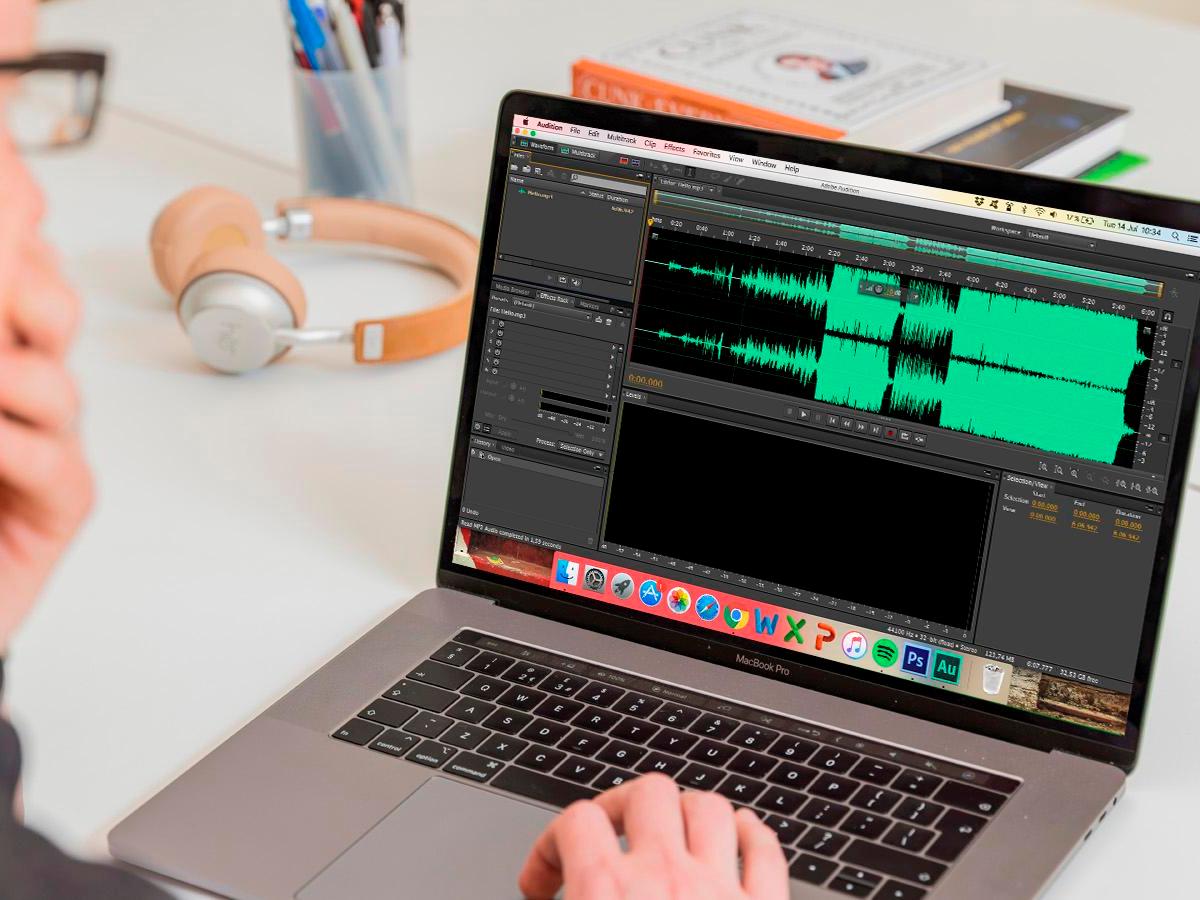Home>Events & Info>Acapella>How To Audition For Acapella Group


Acapella
How To Audition For Acapella Group
Modified: January 22, 2024
Learn how to audition for an acapella group and showcase your vocal talent. Follow our expert tips and techniques to stand out in your acapella audition.
(Many of the links in this article redirect to a specific reviewed product. Your purchase of these products through affiliate links helps to generate commission for AudioLover.com, at no extra cost. Learn more)
Table of Contents
- Introduction
- Finding the Right Acapella Group
- Preparing for the Audition
- Selecting and Preparing an Audition Song
- Practicing Vocal Techniques
- Building Confidence and Stage Presence
- Preparing for the Audition Day
- Arriving Early and Setting Up
- Nailing the Audition
- Showcasing Your Unique Voice
- Handling Nerves and Staying Calm
- Closing Thoughts and Next Steps
Introduction
Welcome to the wonderful world of acapella! Acapella, a unique form of music where the human voice takes center stage, has captured the hearts of audiences around the world. From the smooth harmonies to the beatboxing and vocal percussion, acapella offers a truly captivating experience.
If you have a passion for singing and want to be part of an acapella group, you’re in for an exciting journey. Auditioning for an acapella group can be an exhilarating experience full of opportunities to showcase your talent and connect with fellow musicians who share your love for vocal music.
In this article, we will guide you through the process of auditioning for an acapella group. From finding the right group to preparing for the audition and delivering a standout performance, we’ve got you covered. Whether you’re a seasoned vocalist or new to acapella, our tips and insights will help you put your best foot forward and increase your chances of success.
Before we dive into the nitty-gritty of auditions, let’s explore how to find the right acapella group for you. With the growing popularity of acapella, there are numerous groups out there with different styles and focuses. It’s important to find a group that aligns with your musical interests and aspirations.
Finding the Right Acapella Group
When it comes to acapella, not all groups are created equal. Each group has its own unique style, repertoire, and vibe. Finding the right acapella group for you is crucial to ensure a fulfilling and enjoyable experience. Here are a few steps to help you in your search:
- Research online: Start by doing some online research to find acapella groups in your area. Check out their websites, social media pages, and videos to get a feel for their musical style and the kind of performances they do.
- Attend local performances: Is there a local acapella festival or concert happening in your area? If so, make sure to attend and watch different groups perform live. This will give you a better sense of their talent, stage presence, and musical repertoire.
- Ask for recommendations: Reach out to fellow singers, music teachers, or vocal coaches and ask for recommendations. They may have inside knowledge about acapella groups that are actively seeking new members.
- Audition notices: Keep an eye out for audition notices on community bulletin boards, music schools, or online forums. Many acapella groups publicly post when they are looking for new members.
Once you have compiled a list of potential acapella groups, narrow down your options based on factors such as their musical style, rehearsal schedule, and proximity to your location. It’s important to choose a group that resonates with your musical goals and fits well with your availability.
Reach out to the groups you are interested in and inquire about their audition process. Some groups may require a formal audition, while others may invite you to attend a rehearsal to get a feel for the dynamics and see how well you fit in.
Taking the time to find the right acapella group will ensure that you join a community of like-minded musicians who will inspire and challenge you to grow as a vocalist. Once you’ve found your musical home, it’s time to prepare for the audition process.
Preparing for the Audition
Preparing for an acapella audition requires both mental and vocal preparation. It’s important to approach the audition process with confidence and a clear understanding of what the group is looking for. Here are some tips to help you prepare:
- Research the group: Familiarize yourself with the acapella group’s repertoire, musical style, and any specific requirements they may have for auditions. This will give you a better idea of the kind of performance they expect from potential members.
- Choose appropriate attire: Dress in a way that reflects your personality and is appropriate for the audition. If the group has a specific dress code, try to adhere to it as much as possible.
- Practice your vocal warm-ups: Prior to the audition, make sure to warm up your voice properly. Engage in vocal exercises and stretches to help you achieve your best vocal performance.
- Work on your vocal technique: Focus on improving your vocal technique by practicing proper breath control, intonation, and articulation. Consider working with a vocal coach or taking voice lessons to fine-tune your skills.
- Memorize your audition song: Select a song that showcases your vocal range and abilities. Practice and memorize the lyrics and melody to ensure a confident performance.
- Record and review: Utilize technology to your advantage by recording and reviewing your practice sessions. This will help you identify areas for improvement and make necessary adjustments.
- Prepare additional materials: In addition to your audition song, the group may ask for additional materials such as a resume, headshot, or references. Prepare these materials in advance to save time and avoid any last-minute stress.
Remember, preparation is key to a successful audition. Take the time to meticulously prepare every aspect of your audition, from your vocal performance to your overall presentation. The more confident and well-prepared you are, the more likely you will leave a lasting impression on the audition panel.
Next, we will discuss how to select and prepare an audition song that highlights your unique voice and captivates the audition panel.
Selecting and Preparing an Audition Song
Choosing the right audition song is crucial to showcase your vocal abilities and stand out from the crowd. The song you choose should not only highlight your strengths but also align with the musical style of the acapella group you are auditioning for. Here’s how to select and prepare an audition song:
- Consider your vocal range: Choose a song that falls within your vocal range and allows you to demonstrate your full potential. Select a song that showcases your strengths while challenging you in a comfortable and controlled manner.
- Match the musical style: Research the acapella group’s musical style and choose a song that aligns with their repertoire. If they have a preference for a specific genre or era, try to select a song that fits their preferences.
- Showcase your uniqueness: Look for a song that allows you to showcase your unique voice and individuality. Avoid choosing overly popular or overdone songs, as the audition panel may be looking for something fresh and distinct.
- Prepare the sheet music or backing track: Depending on the preference of the audition panel, prepare the sheet music or backing track for your chosen audition song. Ensure that you are comfortable and familiar with the accompaniment.
- Practice, practice, practice: Dedicate ample time to practice your audition song. Pay attention to phrasing, dynamics, and emotion while staying true to your own interpretation of the song. Work on your performance to engage the audience and showcase your stage presence.
- Solicit feedback: Seek feedback from trusted mentors, vocal coaches, or fellow musicians. They can provide valuable insights and help you refine your performance to make it truly exceptional.
- Record yourself: Record yourself singing the audition song and listen back to it. Take note of areas that need improvement, such as pitch accuracy, tone quality, or diction, and work on refining those areas.
- Be adaptable: During the audition, be prepared to show your flexibility and willingness to take direction. The audition panel may ask you to sing a different section of the song or make adjustments to your performance on the spot.
Remember, the goal is to select a song that showcases your vocal abilities and leaves a lasting impression on the audition panel. Put your own unique spin on the song and deliver a performance that reflects your passion, talent, and dedication.
In the next section, we’ll dive into honing your vocal techniques to ensure an impressive and captivating audition.
Practicing Vocal Techniques
Mastering vocal techniques is crucial for delivering a strong and impressive audition performance. By honing your vocal skills, you can increase your range, improve your tone, and add depth and emotion to your singing. Here are some key vocal techniques to practice:
- Breath control: Focus on proper breathing techniques to support your voice. Practice diaphragmatic breathing and work on sustaining long phrases without running out of breath. This will help you maintain a steady and controlled vocal delivery.
- Range expansion: Explore exercises to expand your vocal range. Work on both the lower and higher registers of your voice to increase your versatility. Gradually stretch your comfort zone and strive for smooth transitions between different vocal registers.
- Pitch accuracy: Practice singing in tune by working on pitch accuracy. Use tools such as a piano or pitch pipe to help you stay in key. Focus on hitting precise pitches and maintaining consistent intonation throughout your performance.
- Articulation and diction: Pay attention to your articulation and diction. Practice pronouncing words clearly and enunciate each syllable to ensure that your lyrics are understood by the audience. This will enhance the clarity and effectiveness of your performance.
- Tone quality: Experiment with different vocal tones to find your unique sound. Practice producing a warm, resonant tone by focusing on vocal placement and relaxation of the throat and jaw. Develop a rich and pleasing timbre that captivates the listener.
- Dynamic control: Work on your ability to control dynamics in your singing. Practice transitioning smoothly between soft and loud volumes to convey different emotions and add depth to your performance. Experiment with crescendos, decrescendos, and subtle variations in volume.
- Expressive interpretation: Connect emotionally with the lyrics and deliver an expressive interpretation of the song. Experiment with different phrasing, dynamics, and vocal inflections to convey the message and evoke emotion in your performance.
- Vocal health: Take care of your voice by practicing good vocal hygiene. Stay hydrated, avoid excessive throat clearing or yelling, and rest your voice when it feels fatigued. Incorporate warm-up and cool-down exercises into your practice routine to prevent strain or injury to your vocal cords.
Consistent practice and dedication to improving these vocal techniques will enhance your overall vocal performance and make you a standout candidate during auditions. Remember to listen to and take care of your voice, as it is your instrument, and it requires proper maintenance and care.
Now that you have worked on your vocal techniques, it’s time to focus on building confidence and stage presence for a truly captivating audition. Let’s explore the next section.
Building Confidence and Stage Presence
Building confidence and stage presence is essential for leaving a lasting impression during an acapella audition. It’s not just about hitting the right notes, but also about connecting with the audience and exuding charisma. Here are some tips to help you build confidence and enhance your stage presence:
- Practice performing: Regularly perform in front of others, whether it’s in front of friends, family, or at open mic nights. The more you expose yourself to performing, the more comfortable and confident you will become on stage.
- Visualize success: Visualize yourself delivering a flawless audition performance. Imagine the audience applauding and feeling the excitement of a successful audition. This positive visualization can help boost your confidence and calm any nerves.
- Engage with the audience: Connect with the audience through eye contact and body language. Engage with them emotionally and make them feel connected to your performance. Remember that the audience wants to see your passion and authenticity shine through.
- Project confidence: Carry yourself with confidence from the moment you walk into the audition room. Stand tall, maintain good posture, and exude positive energy. This confident demeanor will leave a lasting impression on the audition panel.
- Express yourself: Embrace your uniqueness and let your personality shine on stage. Don’t be afraid to add your own personal flair to your performance. Authenticity and self-expression make for a captivating audition.
- Practice stage movement: Utilize the stage and space effectively to enhance your performance. Experiment with movement, gestures, and stage presence that feel natural and compliment your performance. However, be mindful to not overdo it and distract from your singing.
- Control nerves: Nervousness is natural, but it’s important to control it to deliver your best performance. Take deep breaths before going on stage and remind yourself of your preparation and talent. Focus on the joy of singing and sharing your music with others.
- Learn from feedback: Embrace feedback and constructive criticism. It is an opportunity to grow and improve. Take note of the feedback you receive during the audition process and incorporate it into your future performances.
Building confidence and stage presence takes time and practice. Embrace each audition as a learning experience and an opportunity to grow as a performer. Remember, the audition panel is not only interested in your vocal ability but also in your stage presence and ability to connect with an audience.
In the next section, we will explore how to prepare for the audition day and ensure that you are ready to shine when your moment arrives.
Preparing for the Audition Day
The audition day can be both exciting and nerve-wracking. To ensure that you are fully prepared and can give your best performance, it’s important to take certain steps leading up to the big day. Here are some tips to help you prepare for the audition day:
- Review the audition requirements: Take another look at the audition requirements and ensure that you have all the materials and information needed. Double-check the time, location, and any specific instructions provided by the acapella group.
- Practice, but avoid over-practicing: Continue to practice your audition song and vocal techniques leading up to the audition day. However, it’s important to avoid over-practicing, as it can lead to vocal fatigue. Give yourself enough rest and relaxation time to maintain vocal health.
- Mental and physical preparation: Engage in activities that promote relaxation and mental focus. Take time for self-care, such as getting enough sleep, eating well, and engaging in activities that calm your mind. Remaining physically and mentally healthy will help you perform at your best.
- Prepare your materials: Organize all the materials you need for the audition day. This may include copies of your sheet music, a folder with your audition materials, and any additional items requested by the group. Ensure that everything is packed and ready to go.
- Create a checklist: Make a checklist of everything you need to bring on the audition day. This will help ensure that you don’t forget any important items. Include things like water, snacks, a notepad, and a pen for taking notes or filling out any necessary paperwork.
- Visualize your success: Take a few moments each day to visualize yourself successfully completing the audition. Imagine the feeling of confidence and satisfaction as you deliver a stellar performance. Visualization can help build a positive mindset and increase your belief in your abilities.
- Plan your travel: If the audition location is unfamiliar to you, plan your travel route in advance. Consider factors such as traffic, parking, and public transportation options. Aim to arrive at the audition location early to allow yourself ample time to calm any nerves and get settled.
- Stay positive and focused: On the day of the audition, stay positive and focused. Avoid negative thoughts or self-doubt. Remind yourself of the hard work you’ve put in and trust in your abilities. Surround yourself with positive support and encouragement.
- Warm up your voice: Prior to the audition, engage in a vocal warm-up routine to ensure that your voice is ready to perform. Focus on gentle vocal exercises and stretches to warm up your vocal cords and prepare your voice for optimal performance.
By taking these steps to prepare for the audition day, you will enter the audition room with confidence and a sense of readiness. Remember, it’s important to trust in your abilities and enjoy the process. Embrace the opportunity to showcase your talent and passion for acapella music.
In the next section, we will discuss how to make the most out of your audition and deliver a standout performance that highlights your unique voice.
Arriving Early and Setting Up
Arriving early and setting up properly for your acapella audition is crucial to ensure a smooth and stress-free experience. By arriving ahead of time, you can gather your thoughts, calm any nerves, and make a positive first impression. Here are some tips to help you arrive early and set up effectively:
- Plan your timing: Calculate the estimated travel time to the audition location and plan to arrive at least 15-30 minutes early. This buffer time allows for any unexpected delays and gives you a chance to collect yourself before the audition.
- Check for parking or transportation options: If you will be driving to the audition, research the parking options near the venue in advance. Note the availability, cost, and distance to the audition location. If public transportation is your mode of travel, determine the best route and confirm the schedules.
- Bring all necessary materials: Make sure you have all the required materials for the audition, such as your sheet music, audition forms, and any additional items requested by the acapella group. Double-check your checklist to ensure that nothing is left behind.
- Find a quiet space: Upon arrival, locate a quiet space where you can gather your thoughts and prepare mentally. It could be a nearby park, a coffee shop, or any calm environment that helps you relax and focus before the audition.
- Warm up your voice: Engage in a vocal warm-up routine to ensure that your voice is ready to perform. Find a secluded spot to practice some gentle vocal exercises, stretches, and breathing techniques. This will help warm up your vocal cords and calm any nerves.
- Review audition information: Take a few moments to review any specific audition instructions or requirements. Familiarize yourself with the order of auditions, any guidelines or criteria provided, and any additional information you may need to know.
- Stay hydrated: Drink enough water to keep your vocal cords hydrated and your body feeling refreshed. Proper hydration is essential for optimal vocal performance. Avoid excessive caffeine or sugary drinks that can dehydrate you or negatively impact your voice.
- Stay organized: Keep your audition materials organized and easily accessible. Use folders, binders, or any other organizing tools to ensure quick and convenient access to your sheet music, resume, or any other required documents.
- Maintain a positive mindset: As you wait for your turn, maintain a positive mindset and focus on your own preparation rather than comparing yourself to other auditionees. Use this waiting time to visualize a successful audition and stay in a positive, confident frame of mind.
- Be courteous and professional: Interact with others in a respectful and professional manner. Be friendly, approachable, and supportive of fellow auditionees. Remember, maintaining a positive demeanor can leave a lasting impression.
By arriving early and setting up effectively, you create a foundation of calmness and readiness for your audition. Taking these steps demonstrates your professionalism and dedication to the audition process. Stay focused, breathe deeply, and trust in the preparation you have done.
In the next section, we will discuss how to nail the audition and deliver an exceptional performance that showcases your unique voice and talent.
Nailing the Audition
The audition is your moment to shine and showcase your talent. To make the most out of this opportunity and leave a lasting impression, it’s important to approach the audition with confidence, preparedness, and a clear focus. Here are some tips to help you nail the acapella audition:
- Stay calm and relaxed: Take a deep breath and remind yourself to stay calm. Nervousness is natural, but try to channel that energy into a positive and focused performance. Trust in your preparation and believe in your abilities.
- Bring your best energy: Enter the audition room with a positive and enthusiastic energy. Smile, make eye contact with the audition panel, and project confidence. Show them that you are excited about the opportunity to share your talent.
- Introduce yourself: When you enter the audition room, greet the audition panel and introduce yourself with warmth and confidence. This initial interaction sets the tone for your audition and helps create a positive rapport with the panel.
- Engage with the music: Connect emotionally with the lyrics and the music as you perform. Allow yourself to be fully immersed in the moment and to express the story and emotions behind the song. This connection will make your performance more captivating.
- Showcase your vocal range and abilities: Demonstrate the full range and capabilities of your voice during the audition. Incorporate dynamics, vocal embellishments, and control into your performance to highlight your vocal expertise and versatility.
- Focus on accuracy and musicality: Pay attention to the accuracy and musicality of your performance. Stay in tune, follow the rhythm, and maintain a cohesive and expressive delivery. Show that you understand the nuances of the music and can interpret it effectively.
- Deliver a confident stage presence: Utilize the stage and space effectively by incorporating appropriate movements and gestures. Engage with the audience and the panel through eye contact and body language. Show them that you are comfortable and in command of the stage.
- Stay committed to your performance: Regardless of any unexpected hiccups or nerves, stay committed to your performance. Keep going with confidence and maintain your focus. Don’t let small mistakes or distractions derail your overall presentation.
- Stay attuned to the audition panel: Pay attention to any cues or directions given by the audition panel. They may ask you to perform a specific section of the song again, make adjustments to your performance, or engage in a brief interview. Be adaptable and responsive to their guidance.
- Express gratitude: After your performance, express your gratitude to the audition panel for the opportunity to audition. Be gracious and genuine in thanking them for their time, consideration, and feedback.
Remember, the audition is your chance to showcase your unique voice and talent. Be confident, authentic, and committed to delivering the best performance you can. Even if you do not receive an immediate offer, know that each audition is a stepping stone towards growth and future opportunities.
In the next section, we will discuss the importance of showcasing your unique voice and how to make it stand out during the audition process.
Showcasing Your Unique Voice
One of the most important aspects of acapella auditions is showcasing your unique voice. Your voice is your instrument, and it’s your opportunity to bring something special to the performance. Here are some tips on how to highlight your unique voice during the audition:
- Choose the right song: Select a song that showcases your vocal range, style, and personality. Choose a song that allows you to fully express yourself and highlights your strengths. Consider the emotional connection you have with the song and how it aligns with your personal experiences.
- Add your own interpretation: Put your own spin on the song by adding unique phrasing, dynamics, or vocal embellishments. Show the audition panel that you have your own artistic style and can bring something fresh to the performance.
- Show versatility: Demonstrate your versatility by incorporating different vocal techniques, such as falsetto, vibrato, or vocal runs, when appropriate. Showcase your ability to adapt to different musical styles and genres.
- Embrace your authentic sound: Embrace your natural voice and avoid imitating other singers. Your authenticity and genuine sound will stand out and make a strong impression. Focus on showcasing the best version of yourself rather than trying to conform to someone else’s style.
- Express emotion: Connect emotionally with the lyrics and the overall mood of the song. Infuse your performance with genuine emotion and tell a story through your voice. Allow the audience to feel the depth and sincerity in your vocal delivery.
- Use dynamic contrasts: Experiment with dynamic contrasts to add depth and interest to your performance. Play with the volume and intensity of your voice to create moments of impact and highlight different emotions within the song.
- Be expressive: Use your facial expressions, body language, and stage presence to enhance your performance. Engage with the audition panel and the audience through eye contact and confident body movements. Show your passion and commitment to the music.
- Own your uniqueness: Celebrate what makes your voice special. Whether it’s the texture, tone, or vocal quirks, embrace your unique attributes and let them shine through. This is what sets you apart from other singers and makes you memorable.
- Stay true to yourself: Stay true to your own artistic vision and style. Don’t try to change your voice to fit a specific mold or expectation. Trust in your individuality and express yourself authentically. Being true to yourself will resonate with the audition panel and the audience.
- Be confident: Confidence is key to showcasing your unique voice. Believe in yourself and your abilities. Go into the audition room with a positive mindset and exude confidence in every note you sing. Confidence will draw attention to your unique voice and captivate the audience.
Remember, a successful audition is not just about having a technically strong voice, but also about showcasing your personality, emotions, and the qualities that make your voice one-of-a-kind. Embrace your uniqueness, be true to yourself, and let your voice shine through in every aspect of your audition.
In the next section, we will explore how to handle nerves and stay calm during the audition process.
Handling Nerves and Staying Calm
Dealing with nerves during an acapella audition is natural, as it can be an intense and high-stakes situation. However, it’s crucial to manage your nerves and stay calm in order to deliver your best performance. Here are some strategies to help you handle nerves and stay calm during your audition:
- Prepare thoroughly: One of the best ways to combat nerves is to be well-prepared. Practice your audition song extensively and work on your vocal techniques. The more confident and prepared you feel, the more likely you are to stay calm during the audition.
- Focus on your breathing: Deep breathing exercises can help you relax and calm your nerves. Take slow, deep breaths before and during your audition to center yourself and release tension. Focus on your breath to anchor yourself in the present moment.
- Visualize success: Use visualization techniques to imagine yourself successfully navigating the audition. Picture yourself delivering a confident and captivating performance. Visualize positive outcomes and feelings of accomplishment to boost your confidence and calm your nerves.
- Positive self-talk: Replace negative thoughts and self-doubt with positive affirmations. Remind yourself of your abilities and the hard work you’ve put into your preparation. Encourage yourself with constructive and uplifting thoughts to build confidence and stay grounded.
- Warm up your voice and body: Engage in vocal warm-up exercises and physical stretches to release tension in your body. Warm up your vocal cords to ensure that your voice is ready for the performance. A relaxed and warmed-up body can help you feel more at ease during the audition.
- Embrace the adrenaline: Instead of viewing nerves as a negative experience, reinterpret them as excitement. Understand that the adrenaline rush can actually enhance your performance. Embrace the energy and channel it into a dynamic and expressive audition.
- Take breaks: If you feel overwhelmed or anxious, take short breaks to regain your composure. Find a quiet space to collect your thoughts, do some deep breathing, or engage in a calming activity. Give yourself the time and space to recharge and refocus.
- Focus on the music: Redirect your attention to the music and the emotions behind the song. Instead of fixating on your nerves, immerse yourself in the storytelling and expression of the lyrics. Center your focus on connecting with the music and the message you want to convey.
- Remember that nerves are normal: Remind yourself that nerves are a natural response to a challenging situation. Even experienced performers feel nervous at times. Accept your nerves as a sign that you care about doing well and trust in your ability to rise above them.
- Celebrate the experience: Instead of viewing the audition solely as an evaluation, reframe it as an opportunity to share your love for music. Celebrate the joy of singing and enjoy the experience of performing. This shift in mindset can help alleviate nerves and allow you to fully express yourself.
Every singer experiences nerves to some degree, but with the right techniques and mindset, you can manage them and stay calm during your acapella audition. Remember that nerves can actually add an element of excitement and energy to your performance. Embrace the opportunity, focus on your preparation, and trust in your talent and abilities.
In the closing thoughts section, we will summarize the key points and provide some next steps for your acapella audition journey.
Closing Thoughts and Next Steps
Congratulations! You’ve reached the end of our comprehensive guide on auditioning for an acapella group. By following the tips and strategies outlined in this article, you are well-equipped to navigate the audition process with confidence and skill. Here are some closing thoughts and next steps for your acapella audition journey:
Remember that auditions are not just about technical skill, but also about showcasing your unique voice and personality. Your passion and authenticity are what will truly make you stand out in the eyes (or ears) of the audition panel. So embrace your individuality, explore your vocal capabilities, and let your true voice shine.
As you move forward, keep these key points in mind:
- Preparation is crucial: Put in the necessary time and effort to prepare your audition song, vocal techniques, and stage presence. Thorough preparation will give you the confidence to deliver a standout performance.
- Choose the right acapella group: Research and find an acapella group that resonates with your musical interests and aspirations. Joining a group that aligns with your goals will enhance your experience and allow for growth as a vocalist.
- Take care of yourself: Prioritize your vocal health by practicing good vocal hygiene, staying hydrated, and giving yourself time to rest. Take care of your physical and mental well-being, as it directly impacts your performance.
- Learn from each audition: Every audition is a learning opportunity, regardless of the outcome. Embrace the feedback you receive and use it to further develop your skills and grow as a performer.
- Keep persevering: Don’t let setbacks or rejections discourage you. The path to success in the acapella world may require multiple auditions and experiences. Use each opportunity to refine your craft and continue working towards your goals.
Finally, remember that auditions are just the beginning of your acapella journey. Whether you secure a spot in a group or not, continue to nurture your passion for acapella. Seek out performance opportunities, collaborate with other musicians, and never stop learning and improving your vocal abilities.
So take a deep breath, step onto the audition stage with confidence, and let your incredible voice resonate. Your acapella journey awaits, and we can’t wait to see you flourish!











